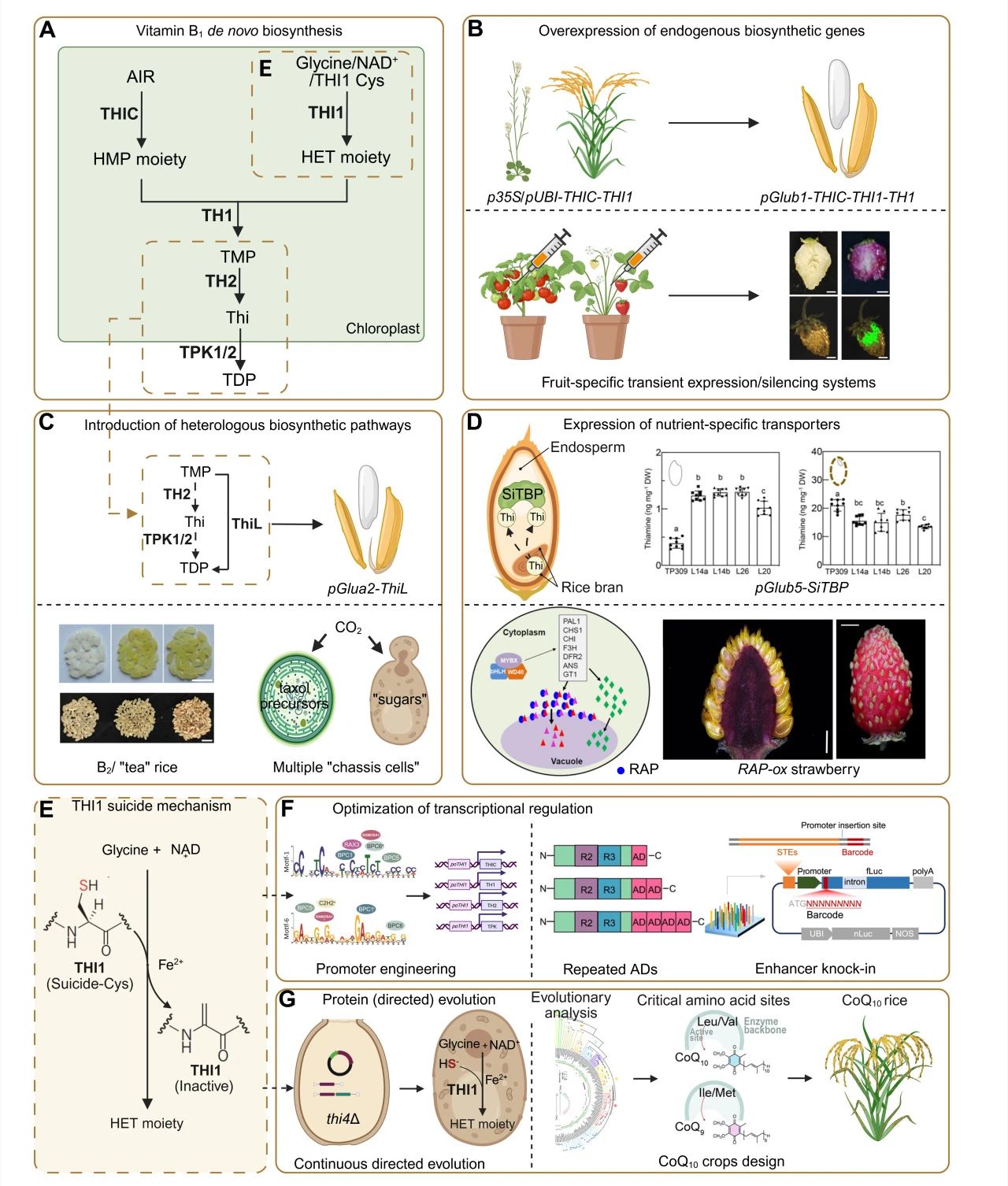More than 4 billion people worldwide face the challenge of “hidden hunger” — a form of micronutrient deficiency exacerbated by modern dietary habits and widespread consumption of ultra-processed foods. It is necessary to produce more functional and high nutritive value food through modern science and technology.

A recent mini-review published in theJournal of Integrative Plant Biology(IF 11.4, plant journal ranking 12/487 in 2022) by Associate Researcher Dr. Kai Wang and Professor Zhongchi Liu from the Faculty of Synthetic Biology and the Institute of Emerging Agricultural Technology at Shenzhen University of Advanced Technology systematically outlines next-generation strategies for plant-based nutritional enhancement guided by synthetic biology. Using vitamin B1 (thiamine) as a model, the review proposes five core strategies that promise to reshape future crop biofortification:
(1) Overexpression of Endogenous Genes: Enhancing the expression of native biosynthetic enzymes to boost metabolic flux and vitamin production.
(2) Introduction of Heterologous Pathways: Incorporating microbial or non-native biosynthetic routes into plants to enable the synthesis of novel or high-value nutrients.
(3) Transporter Engineering: Expressing nutrient-specific transport proteins to redirect micronutrients toward edible tissues for improved bioavailability.
(4) Optimization of Transcriptional Regulation: Using non-transgenic tools such as transcription factor activation, promoter engineering, and CRISPR-mediated enhancer knock-ins to fine-tune nutrient synthesis at the transcriptional level.
(5) Protein (Directed) Evolution: Applying AI-guided enzyme engineering and gene editing to overcome natural bottlenecks and improve the catalytic performance of key metabolic enzymes.
To further accelerate the development of next-generation functional crops, the team outlines four forward-looking directions:
Expanding Plant Chassis: Developing new synthetic biology “chassis plants” such as strawberry and tomato, which are edible raw, easy to transform, and ideal for precise metabolic engineering.
Multiplex Genome Editing: Utilizing CRISPR-based multi-gene editing for coordinated pathway optimization and degradation suppression.
AI-Assisted Protein Design: Leveraging machine learning and directed evolution to enhance enzyme function and nutrient biosynthesis.
Non-Transgenic Innovation: Emphasizing genome editing methods that avoid foreign DNA insertion, thus overcoming regulatory hurdles and improving public acceptance.
The review highlights the promising future of biofortified crops in addressing malnutrition and boosting global food quality. With the functional food market projected to reach USD 597.1 billion by 2032, precise, safe, and sustainable plant-based nutritional solutions are expected to become a key pillar in this growing industry.
Driven by synthetic biology, Liu Zhongchi’s research team at Shenzhen University of Advanced Technology is spearheading a shift from yield-oriented agriculture to nutrition-focused crop innovation — a transformative step for China’s agri-food technology sector. Professor Liu’s lab has long focused on the molecular genetics and fruit development of wild strawberries and aims to establish strawberry as a novel “chassis plant” for synthetic biology and functional trait improvement. Dr. Kai Wang and Professor Zhongchi Liu are co-corresponding authors of this study, which was supported by funding from Shenzhen University of Advanced Technology.
